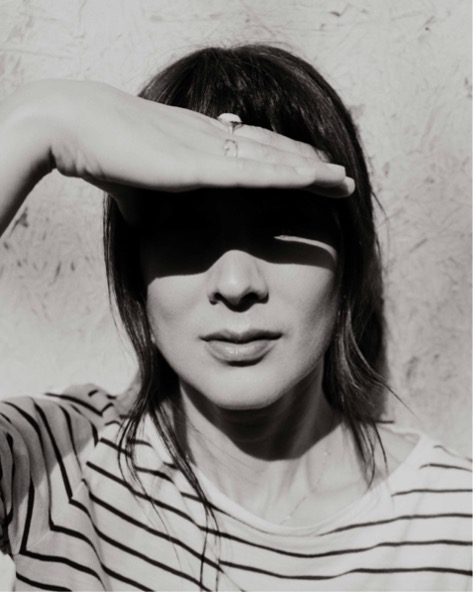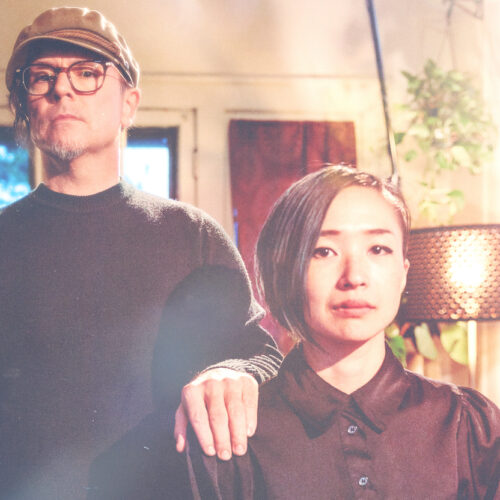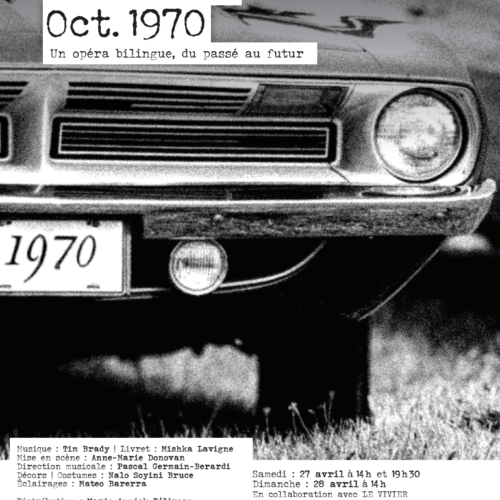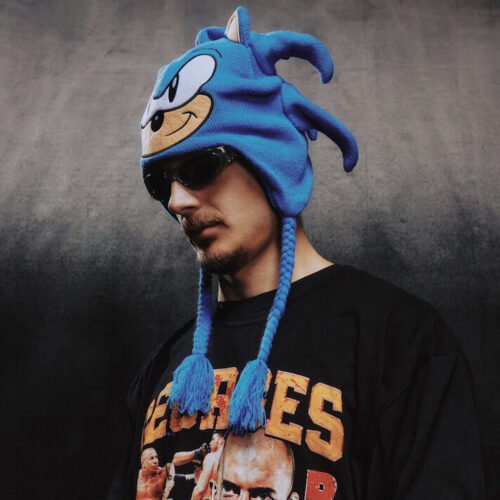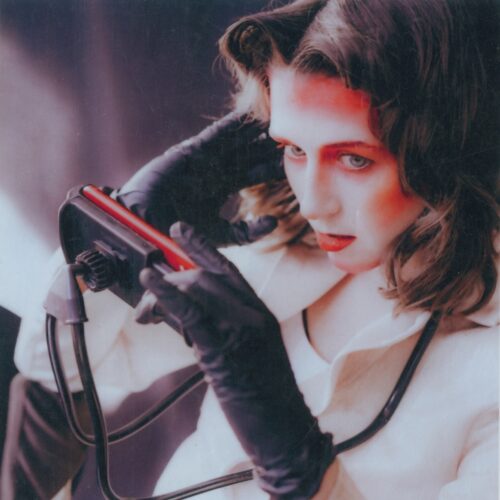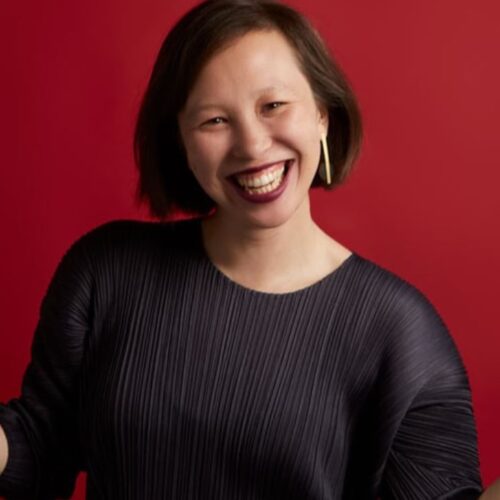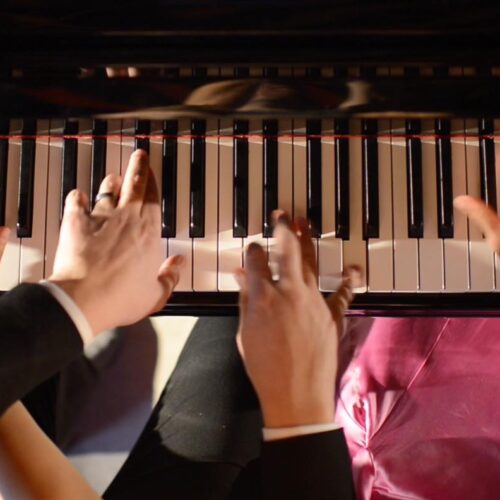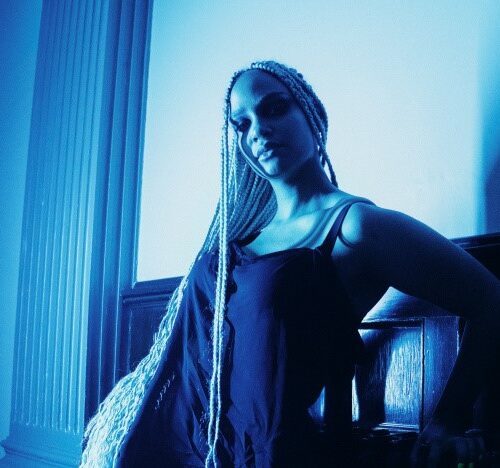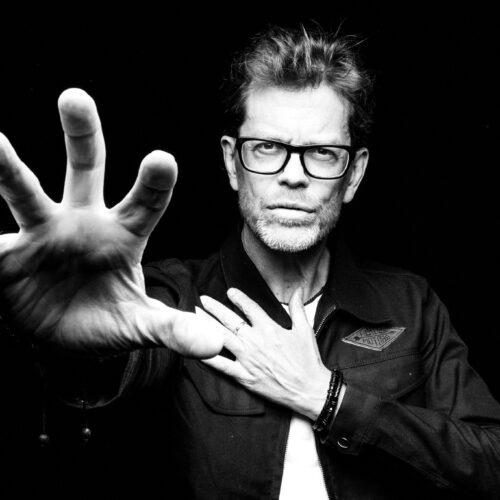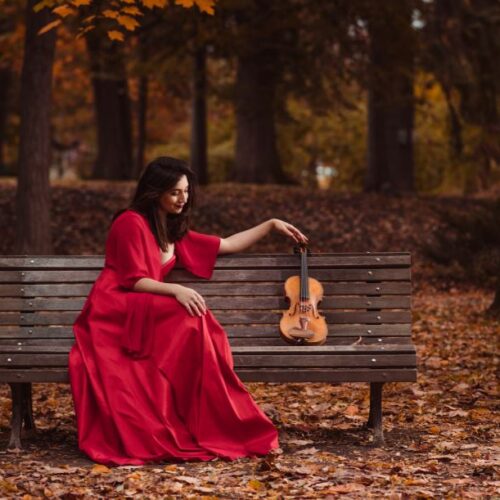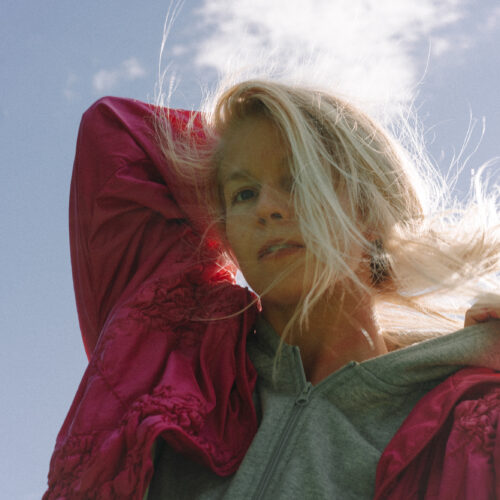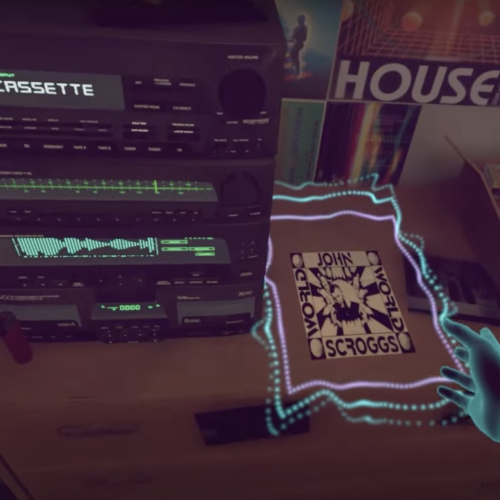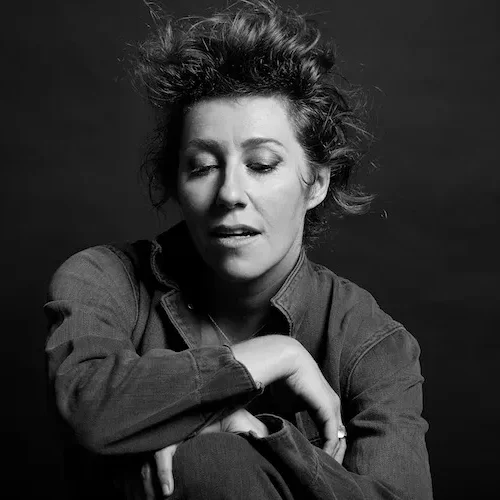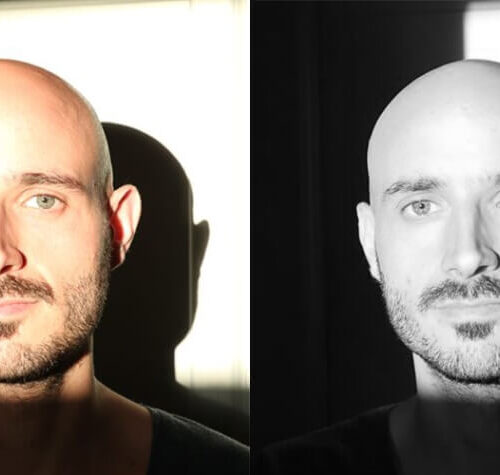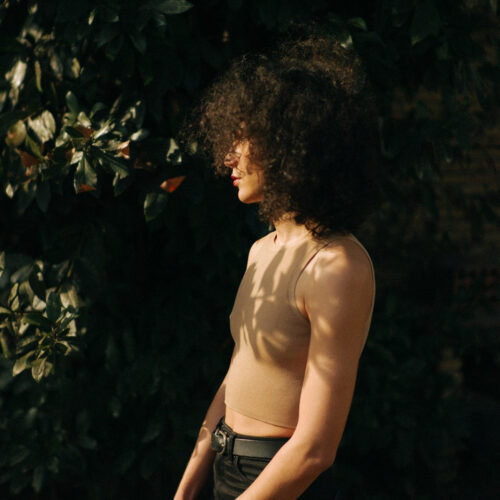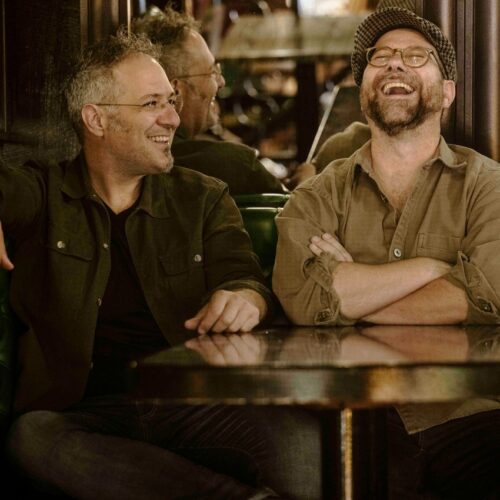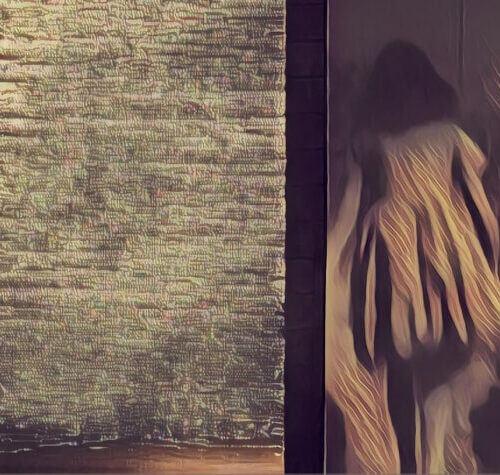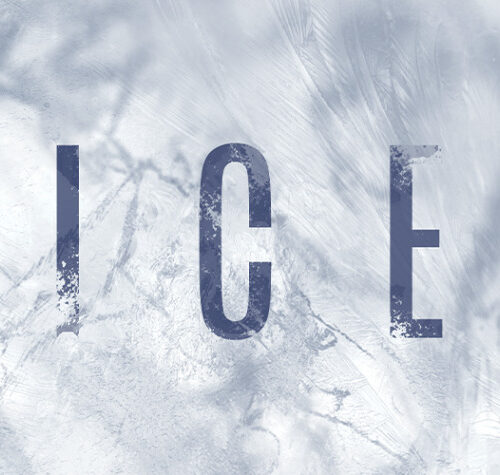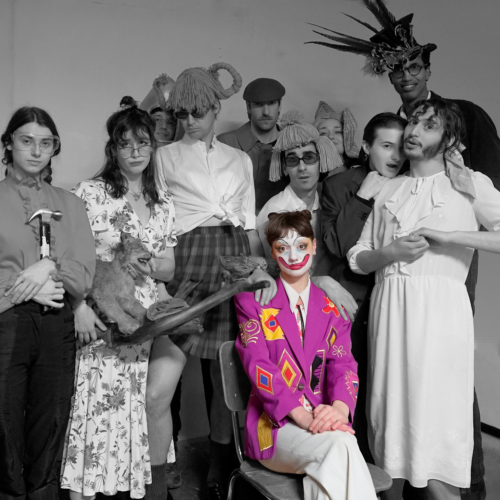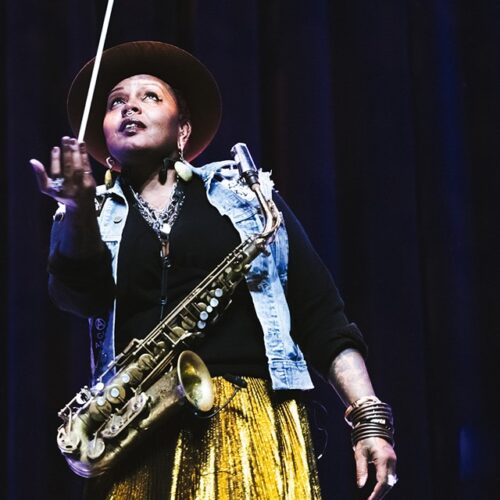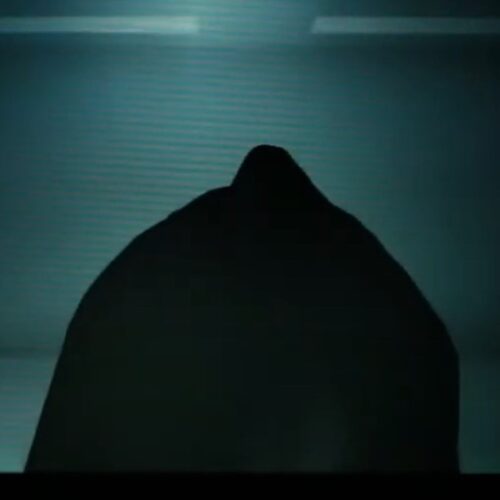Additional Information
The singer-songwriter, Maude Audet, unveiled her fifth album, We must leave now, last Friday.
After a short stint in English with Translations (2021), the Quebecer offers a new project of eleven luminous and poetic titles. As usual, she draws much of her inspiration from the 1960s and 1970s, an era she dearly cherishes. This time, Maude Audet adds her voice to orchestral arrangements that she has jointly concocted with Mathieu Charbonneau (Avec pas d’casque, and Organ Mood).
Mostly created during the pandemic, We must leave now is the result of many questions and the artist’s personal journey. The texts are neat, simple and release both the pain and hope experienced by Maude Audet in recent years. The project ends with “I’m so afraid,” a collaboration with Mara Tremblay. With gentleness and sensitivity, this title addresses the fear of women in the face of feminicides and represents a highlight of the album.
Photo Credit: Fred Gervais
Maude Audet will bring her fifth opus to the Gesù stage on April 20.
PAN M 360: What is your album about You have to leave now ?
MAUDE AUDET: The themes I address in this project are both personal and universal. It’s a bit my way of composing starting from something of myself. The first few times I started writing about personal matters, I touched people more. At the end of the day, we all experience a bit the same things, even if we are all different. We all have heartaches, bereavements and difficult times. Of course, from one album to another, it’s always a challenge to renew yourself and not repeat the same things. It’s an album that started to be composed during the pandemic. We have all been through things, we have all found ourselves, at times, isolated, more than we would have liked. There are habits that we realized that we didn’t want to keep for the future. I have questioned myself a lot during the pandemic about the person I want to be and my future. These questions are at the heart of this record, that’s for sure.
PAN M 360: How did your creation go during the pandemic?
MAUDE AUDET: Not being able to go to the studio for part of the pandemic kind of allowed me to polish my tracks more, and that’s good. So when I arrived in the studio, I had even bigger ideas than usual. I worked a lot with the orchestration for this album, and it was really nice to finally be in the studio and create with real humans. It went really well.
PAN M 360: Tell me about your musical influences and your attachment to the 1960s & 1970s?
MAUDE AUDET: I love those years. I like the folk side of this era. I also like a panoply of contemporary artists who are also inspired by that era, like Lana Del Rey, Weyes Blood, Father John Misty. I draw a lot of inspiration from that, but I find that my music is still 2023 because I incorporate current elements into it. It is sure that it remains very organic music, I find that it makes my music timeless. I’m also a ’90s teenager, so there’s a rawer side to the way I compose. It probably comes from my grunge influences, even if my music is not in this musical style at all.
PAN M 360: You mentioned artists like Lana Del Rey who are in this musical genre and who have had their share of success. What is the place of this type of music today?
MAUDE AUDET: I’m most likely a bad judge, but I love that kind of music. Take Lana Del Rey for example, she has millions of listeners, she is extremely prolific too, she makes almost an album a year and her fans are always there waiting. She is an artist who really reinvents herself a lot, then who also draws on something very urban, despite the fact that she is inspired by the 1960s & 1970s. In this type of music, there is comfort and I think we will always need it. I’m not saying that other genres don’t bring it, on the contrary, there are rap or hip-hop artists who have extraordinary texts. I find that there are really good things happening in all genres at the moment, you just have to choose your niche and choose what you like.
PAN M 360: Your new title “On ne se dire plus que je t’aime” particularly appealed to me on your new album. How was this song born?
MAUDE AUDET: When I composed it, I had mourning in mind, but in the end, it’s more about the memory of someone with whom we shared things in the past and their absence. There are several ways to interpret this title, it could speak of a heartbreak or of someone who is no longer present in our life, but whom we loved very much. Also, it talks a lot about the forest, about nature. The older I get, the more I am soothed by the grandeur of nature and it has become a bit of a refuge for me in difficult times. That’s why I tackle this theme in “On ne se sera plus que je t’aime.”
PAN M 360: For the first time, you ensure the co-production of one of your projects. What does your creative process look like?
MAUDE AUDET: I’ve always been very involved in the production, and I was even more so for this album. Often my compositions start with the guitar. Then I add backing vocals and other instruments. I develop my own models and my colleague Mathieu Charbonneau helps me bring my ideas to life. I am surrounded by several excellent musicians.
PAN M 360: We must leave now ends with “I’m so afraid,” a collaboration with Mara Tremblay. What is the story behind this title?
MAUDE AUDET: “I’m so scared,” it’s a song about feminicides. At one point during the pandemic, it felt like there were two a week. Every time I saw such an event on the news, I said to myself that it didn’t make sense that there were women who still suffered from this violence. This is what inspired me for the creation of this title. Initially, this song was not supposed to be a duet. One day I had the idea that this song could become a mini-choir of women supporting each other. I thought of Mara because she is one of my favorite artists in Quebec. Also, the themes of my song resemble certain ideas that Mara Tremblay has approached in the past. She agreed to join me and I was really happy. I had already met her in the past, and I took a chance by asking her.
